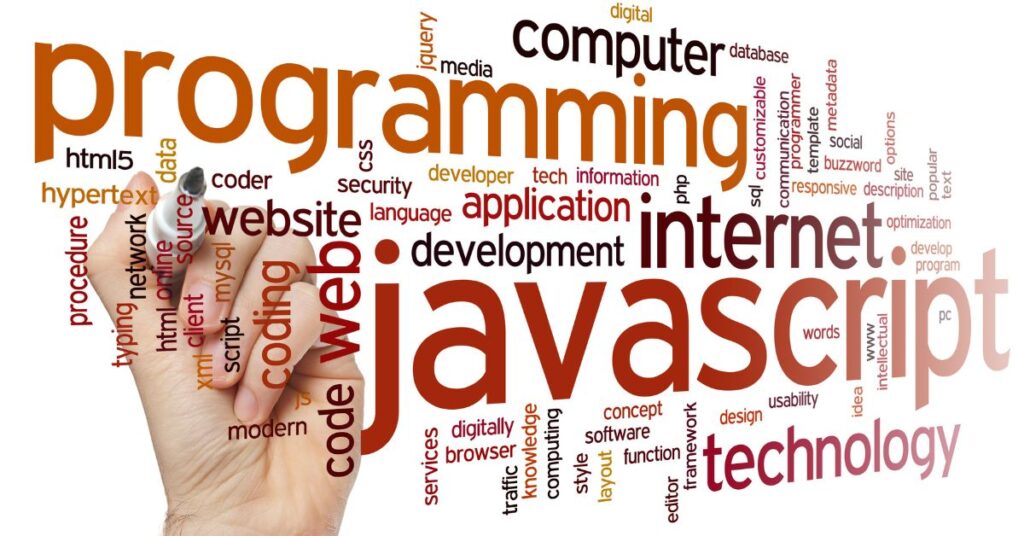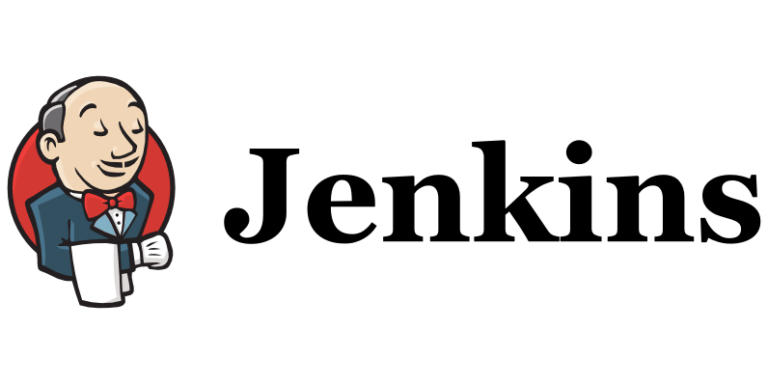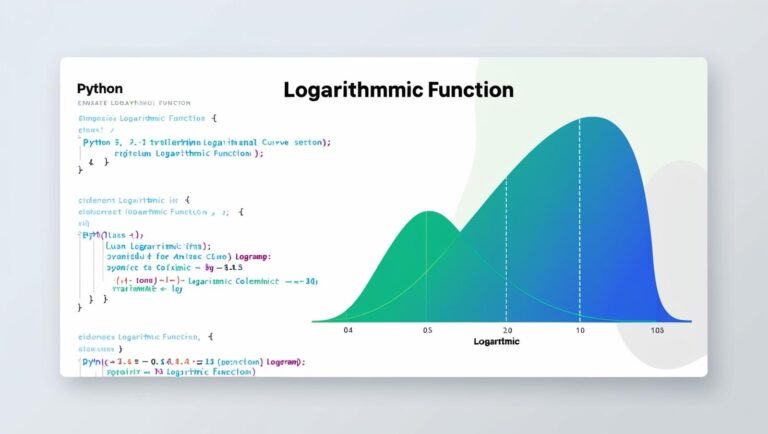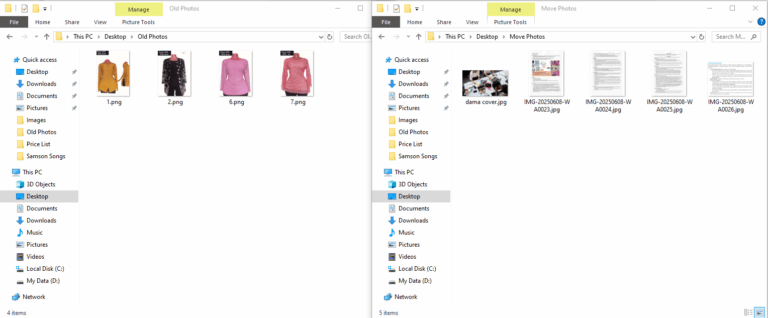Best Programming Languages to Learn in 2025
The best programming languages to learn in 2025 are essential for anyone looking to thrive in the tech industry. As technology continues to evolve, certain languages will offer more opportunities and relevance.
Whether you’re just starting or seeking to enhance your skills, knowing which languages to focus on can significantly impact your career.
From web development to data analysis, the right programming language can unlock exciting possibilities.
This guide will explore the top languages to consider, helping you navigate the ever-changing landscape of technology effectively.
Why don’t we try one and make a life-changing career? Or why don’t we advance what we do and fine-tune to become experts? Let’s get down and sip a sweet juice about each programming language that will change your career.
Why Learn Programming Languages?
Learning programming languages is essential for several reasons. Here are some compelling reasons to dive into the world of coding:
1. Flexibility: Many programming languages are versatile and can be used across various domains. This flexibility allows you to pivot your career focus as industries evolve.
2. Career Opportunities: The demand for skilled programmers continues to rise. Many industries, from tech to healthcare, require programming skills. Mastering the best programming languages to learn in 2025 can lead to lucrative job offers.
3. Problem-Solving Skills: Coding enhances your ability to think critically and solve problems. It encourages logical reasoning, a skill that can be applied in everyday life. By tackling coding challenges, you develop a mindset that is valuable in any profession.
4. Creativity: Programming is not just about writing code; it’s also a form of creative expression. Whether you’re designing a website or developing an app, coding allows you to bring your ideas to life.
5. Understanding Technology: In our digital age, understanding how technology works is crucial. Learning programming languages helps you comprehend the underlying mechanisms of the software you use daily.
6. Community and Collaboration: The programming community is vast and supportive. Engaging with other developers can lead to networking opportunities and collaboration on projects.
Top Programming Languages to Consider
Here are some of the best programming languages to learn in 2025.
1. Python
Python remains a top choice for many developers due to its simplicity and readability. This language is particularly ideal for beginners looking to enter the programming world.
Its clear syntax allows new coders to grasp fundamental concepts quickly without being overwhelmed by complex rules.
According to the TIOBE Index, Python consistently ranks as one of the top programming languages, reflecting its popularity and widespread use in various fields.

Real-world applications of Python are diverse, spanning web development, data science, and artificial intelligence. In web development, frameworks like Django and Flask enable developers to create dynamic and responsive websites with ease.
In data science, Python’s powerful libraries, such as Pandas and NumPy, make it a go-to choice for data analysis and manipulation.
Additionally, its role in machine learning has been solidified through libraries like TensorFlow and Scikit-learn, making it indispensable in the AI domain.
Companies like Google and Facebook leverage Python extensively to build their platforms and services. For instance, Google uses Python for various applications, including system automation and data analysis.
Facebook relies on Python for its backend services, showcasing the language’s ability to handle large-scale applications efficiently.
This widespread adoption by major tech giants highlights Python’s reliability and versatility, making it a compelling choice for anyone looking to enhance their programming skills.
Check this article >>> Python in Everyday Life: How to Make it a Hobby
2. JavaScript
JavaScript is essential for web development, serving as the backbone of interactive and dynamic websites.
It enables developers to create rich user experiences, allowing for real-time updates and engaging interfaces.
With the ability to manipulate the Document Object Model (DOM), JavaScript brings static HTML pages to life.
Its versatility extends beyond basic scripting, as it powers client-side and server-side applications, making it a fundamental skill for any web developer.
The language boasts a wide range of frameworks and libraries, such as React, Angular, and Vue.js, which facilitate efficient development processes.

React, developed by Facebook, is renowned for its component-based architecture, allowing developers to build reusable UI components.
Angular, maintained by Google, offers a comprehensive framework for building robust single-page applications.
These tools not only streamline development but also enhance performance, enabling developers to deliver high-quality applications quickly.
In 2025, JavaScript will still be relevant, continuing to dominate the web development landscape. According to Stack Overflow, over 70% of developers use JavaScript, highlighting its importance in the coding community.
Major companies like Netflix and LinkedIn rely on JavaScript for their platforms, utilizing it for everything from user interfaces to backend services.
As the web continues to evolve, the demand for JavaScript developers will remain strong, ensuring that mastering this language is a valuable investment for anyone pursuing a tech career.
3. Java
Java has been a stable choice for many years, maintaining its relevance in the ever-evolving tech landscape.
Its robust architecture and extensive libraries make it a preferred language for enterprise applications.
One of Java’s standout features is its “write once, run anywhere” philosophy, which allows developers to create code that can operate on any platform that supports the Java Virtual Machine (JVM).
This portability is a significant advantage, especially for large organizations that require flexibility and scalability in their software solutions.
According to the IEEE Spectrum, Java ranked among the top programming languages in 2023, showcasing its enduring popularity and widespread adoption. Its strong community support and wealth of resources contribute to its ongoing success.

Java’s stability and reliability make it an ideal choice for mission-critical applications, where performance and security are paramount.
This consistent ranking highlights the language’s ability to adapt to new challenges and technologies, ensuring its place in the programming world.
Many prominent companies, such as Amazon and eBay, utilize Java for backend development.
These organizations rely on Java’s robustness to handle large volumes of transactions and data processing.
For example, Amazon uses Java to maintain its vast infrastructure and services, allowing for seamless scalability.
Similarly, eBay employs Java to ensure a reliable and efficient user experience on its platform. As businesses continue to grow and evolve, Java’s foundational role in enterprise applications will remain crucial, making it a valuable skill for developers.
4. Go
Go, or Golang, is gaining popularity for its efficiency and performance, making it an attractive choice for developers. Originally developed by Google, Go is specifically designed for building scalable applications that can handle high levels of concurrency.
Its simplicity in syntax allows new developers to pick it up quickly, reducing the learning curve typically associated with more complex programming languages.
This ease of use combined with powerful features makes Go an appealing option for both novice and experienced programmers.
In 2023, Go ranked high in developer satisfaction surveys, reflecting its growing acceptance within the programming community.
Many developers appreciate its clean syntax and robust standard library, which simplifies the development process.
Additionally, Go’s strong focus on performance and efficiency allows applications to run faster and more smoothly, which is crucial for modern software solutions.
This positive reception indicates that Go is not just a trend, but a lasting player in the programming landscape.
Companies like Dropbox and Uber have adopted Go for their services, leveraging its capabilities to enhance their platforms significantly.
For instance, Dropbox uses Go to manage its backend services, benefiting from its concurrency features to handle multiple requests seamlessly.
Uber also employs Go in various aspects of its infrastructure, allowing for efficient real-time data processing.
As more organizations recognize the advantages of Go, its demand is likely to increase, making it a valuable language to learn.
You can get the Go eBook from Amazon by clicking here and selecting any kind of book you want from the All Go Programming books.
5. C#
C# is a versatile language developed by Microsoft, known for its wide-ranging applications across various domains.
From web development to game development, C# provides developers with the tools they need to create robust and efficient applications.
Its object-oriented design and strong support for modern programming paradigms make it an ideal choice for both new and experienced programmers.
A standout feature of C# is its integration with the Unity game engine, which is widely used for building interactive and immersive gaming experiences.
Statistics show that C# is a favorite among developers, consistently ranking high in various programming language surveys.
Its popularity can be attributed to its rich set of features, including a strong type system, garbage collection, and extensive libraries.
These advantages enable developers to write clean, maintainable code while also speeding up the development process.
Moreover, the strong community support for C# means that developers have access to a wealth of resources, tutorials, and frameworks.
Many companies in the gaming industry, such as Electronic Arts, utilize C# for their projects, benefiting from its capabilities to create high-quality games.
C# allows for seamless integration of graphics, sound, and physics, making it a preferred choice for game developers.
Additionally, its versatility extends beyond gaming; organizations in various sectors use C# for enterprise applications and web services.
As C# continues to evolve, its importance in the tech landscape will only grow, making it a valuable skill for developers looking to advance their careers.
6. Rust
Rust is known for its focus on safety and performance, making it a standout choice in the programming landscape. One of its most significant features is its ability to prevent memory-related errors, which are common pitfalls in many other languages.
By enforcing strict ownership rules and borrowing principles, Rust eliminates issues such as null pointer dereferences and buffer overflows.
This unique approach not only enhances code safety but also boosts overall performance, making Rust particularly appealing for systems programming and low-level applications.
The Rust community is growing rapidly, attracting a diverse group of developers who appreciate its robustness and reliability.
As more programmers recognize the benefits of using Rust, the community continues to expand, fostering collaboration and innovation.
Resources like forums, libraries, and tools are becoming increasingly accessible, making it easier for newcomers to learn the language.
This supportive environment encourages developers to share knowledge and contribute to the ecosystem, further accelerating Rust’s adoption.
Companies like Mozilla and Dropbox have integrated Rust into their projects, showcasing its practical applications in real-world scenarios.
Mozilla initially developed Rust to address performance and safety challenges in its Firefox browser. Today, it uses Rust in various components to enhance security and efficiency.
Similarly, Dropbox employs Rust for performance-critical services, benefiting from its ability to handle concurrent tasks effectively.
As Rust continues to gain traction in various industries, its role as a reliable and efficient programming language is set to grow, making it an attractive option for developers looking to future-proof their skills.
7. TypeScript
TypeScript, a superset of JavaScript, introduces static typing to the language, significantly enhancing the development experience.
This feature allows developers to define variable types explicitly, making it easier to catch errors during the coding process.
By providing compile-time checks, TypeScript helps identify potential issues before the code is run, which can save both time and resources in larger projects.
Many organizations are increasingly moving from JavaScript to TypeScript, especially for large codebases where maintainability and scalability are crucial.
As of 2025, TypeScript has become one of the most popular programming languages, reflecting its growing acceptance in the development community.
Its adoption has surged due to the advantages it offers, such as improved code quality, better tooling support, and enhanced collaboration among developers.
The TypeScript ecosystem is robust, with many libraries and frameworks, making it a versatile choice for various applications.
This popularity is evidenced by numerous surveys indicating that developers favor TypeScript for its ability to enhance productivity and reduce debugging time.
Notable companies like Slack and Microsoft have embraced TypeScript in their applications, demonstrating its effectiveness in real-world scenarios.
Slack uses TypeScript to improve its code quality and streamline the development process, while Microsoft, the creator of TypeScript, integrates it across many of its products, including Visual Studio and Azure services.
As more organizations recognize the benefits of TypeScript, its position as a leading programming language is likely to strengthen, making it a valuable skill for developers to master in the years to come.
8. Swift
Swift is the go-to language for iOS development, widely recognized for its modern syntax and powerful features.
Designed to be easy to read and write, Swift allows developers to create high-quality applications efficiently.
Its strong typing system and safety features help prevent common programming errors, making it an ideal choice for both new and experienced developers.
As the popularity of iOS apps continues to soar, the demand for Swift developers is correspondingly high, positioning the language as a critical skill in the mobile development landscape.
Apple’s commitment to Swift ensures its longevity and relevance in the evolving tech ecosystem. Since its introduction, Apple has actively supported and updated Swift, continually adding new features and enhancements.
This support is vital for developers, as it guarantees ongoing improvements and a stable foundation for iOS application development.
Swift’s seamless integration with Apple’s frameworks and tools further solidifies its status as the preferred language for iOS development.
Notable companies like Airbnb and Uber leverage Swift for their iOS applications, showcasing its effectiveness in real-world scenarios.
Airbnb uses Swift to enhance the performance and user experience of its app, while Uber employs it to ensure the reliability and speed of its ride-hailing services.
As more businesses recognize the advantages of using Swift, its adoption will likely continue to grow, making it a valuable skill for aspiring mobile developers looking to capitalize on the booming iOS market.
Read more >>>Python to Automate Daily Tasks: How to Move JPG Images Using Python
9. Kotlin
Kotlin is the preferred language for Android app development, celebrated for its modern features and concise syntax.
Fully interoperable with Java, Kotlin allows developers to leverage existing Java code while enjoying the enhancements it offers.
This interoperability simplifies the transition for teams already familiar with Java, enabling them to adopt Kotlin without significant hurdles.
Google’s official support for Kotlin as a first-class language for Android development has further boosted its popularity, making it the go-to choice for many developers.
In the Android developer community, Kotlin is rapidly gaining traction due to its numerous advantages. Developers appreciate its ability to reduce boilerplate code, making applications cleaner and more maintainable.
Features like null safety and extension functions enhance code reliability and readability, which are crucial for building robust applications.
As more developers recognize these benefits, Kotlin’s adoption continues to grow, positioning it as a dominant language in the Android ecosystem.
Many companies, including Pinterest and Trello, have embraced Kotlin for their apps, showcasing its effectiveness in real-world applications.
Pinterest utilizes Kotlin to improve the performance and efficiency of its mobile platform, while Trello has integrated it to enhance user experience and streamline development.
As the demand for high-quality Android applications increases, Kotlin’s role in the development process will likely expand, making it a valuable skill for aspiring Android developers looking to thrive in a competitive market.
10. SQL
SQL is essential for database management, providing developers with the tools to interact with databases effectively.
With its powerful query language, SQL enables users to create, read, update, and delete data in relational databases.
As data continues to grow exponentially in today’s digital landscape, the ability to manipulate and analyze this data using SQL remains a critical skill for professionals in various fields.
According to the DataCamp survey, SQL is consistently ranked as one of the most sought-after skills in the job market.
This high demand is largely due to the increasing reliance on data-driven decision-making across industries.
Organizations recognize the importance of harnessing data insights to improve their operations, enhance customer experiences, and drive business growth.
As a result, proficiency in SQL is often a prerequisite for roles in data analysis, data science, and database administration.
Companies across various sectors, including finance, healthcare, and technology, rely on SQL for their data analytics needs.
For instance, financial institutions use SQL to manage customer data and analyze transaction patterns, while healthcare organizations leverage it to track patient information and improve service delivery.
In the tech industry, firms utilize SQL to power applications and manage large datasets efficiently.
As businesses continue to prioritize data analytics, the importance of SQL skills will only increase, making it an invaluable asset for anyone pursuing a career in data-related fields.
Read more >>> Prompt Engineering: How to Get the Best from AI Models
Factors Influencing Language Popularity
Several factors influence the popularity of programming languages. Trends in technology, job market demands, and community support play a role.
1. Industry Demand
Industries constantly evolve with emerging technologies. Languages that support new technologies often see increased demand. For example, Python’s rise correlates with the growth of data science.
2. Community Support
A strong community ensures resources, libraries, and frameworks are available. Languages like JavaScript and Python benefit from large communities. This support helps new developers learn and troubleshoot effectively.
3. Versatility
Languages that can be used across multiple domains tend to be more popular. For instance, JavaScript is used for both frontend and backend development. This versatility increases its relevance.
Future Trends in Programming
As we look ahead, several trends will shape programming languages. Understanding these trends can help you choose the best programming languages to learn in 2025.
1. Rise of Artificial Intelligence
AI is transforming various industries. Languages that support AI and machine learning will be in high demand. Python, with its libraries like TensorFlow, is already a favorite in this area.
2. Increased Focus on Data Science
Data is becoming a critical asset for businesses. Skills in data analysis and visualization will be essential. Languages like R and SQL will continue to be valuable as a result.
3. Growth of Web Development Technologies
Web development is continuously evolving. The demand for interactive and dynamic websites will grow. JavaScript and its frameworks will remain crucial for developers.
Check this >>> The Most Powerful AI Models: What Developers Should Know
Conclusion
Choosing the best programming languages to learn in 2025 requires careful consideration. Factors like industry demand, community support, and future trends matter.
Python, JavaScript, Java, and Go are some top choices for new and experienced developers. Learning these languages can open doors to exciting career opportunities.
As technology continues to advance, staying updated is crucial. Keep an eye on emerging languages and trends to remain competitive in the job market. Investing in your programming skills today will pay off in the future.






